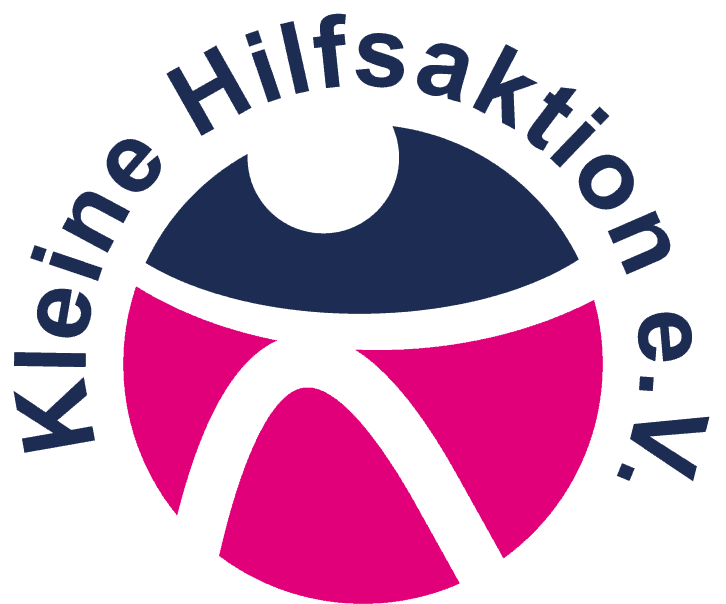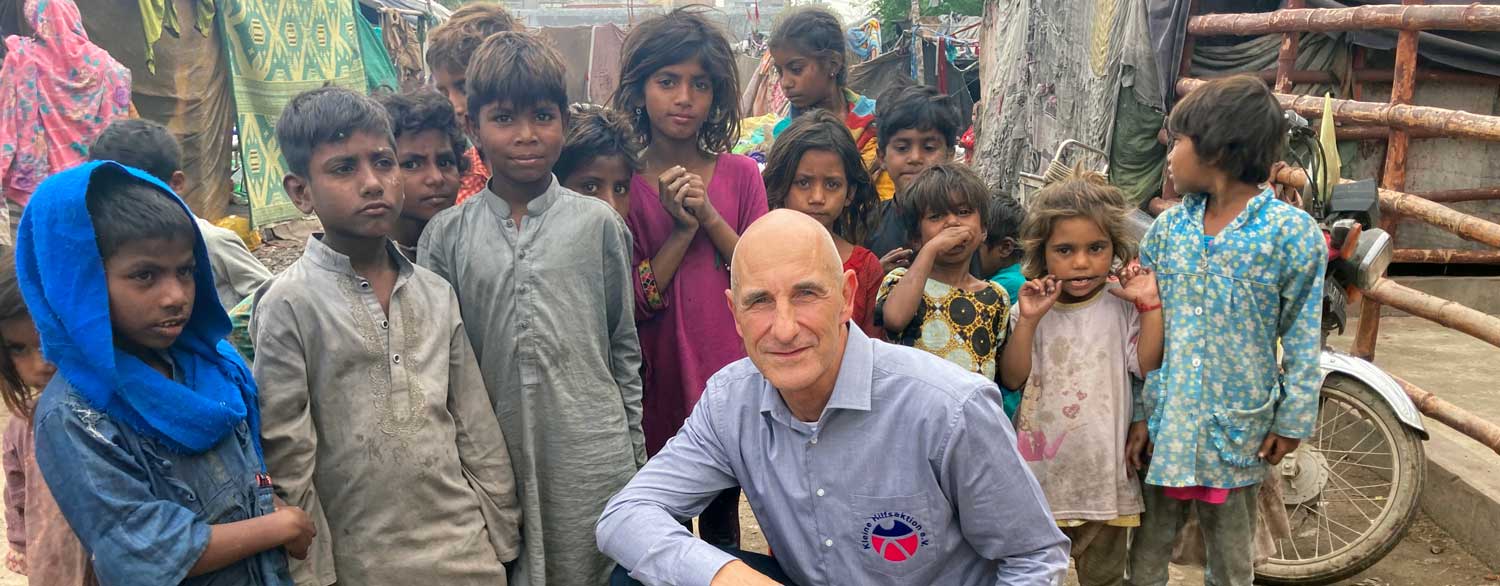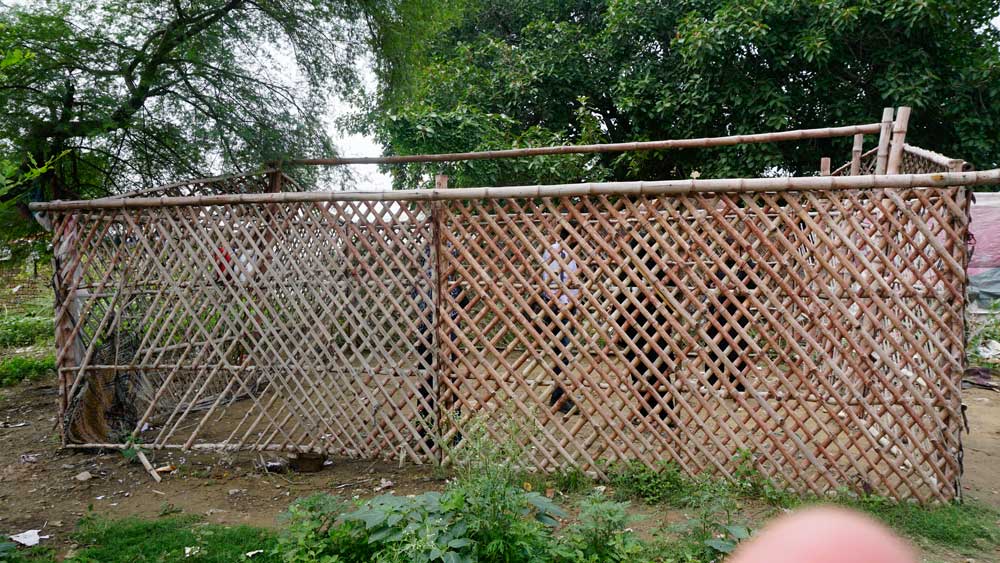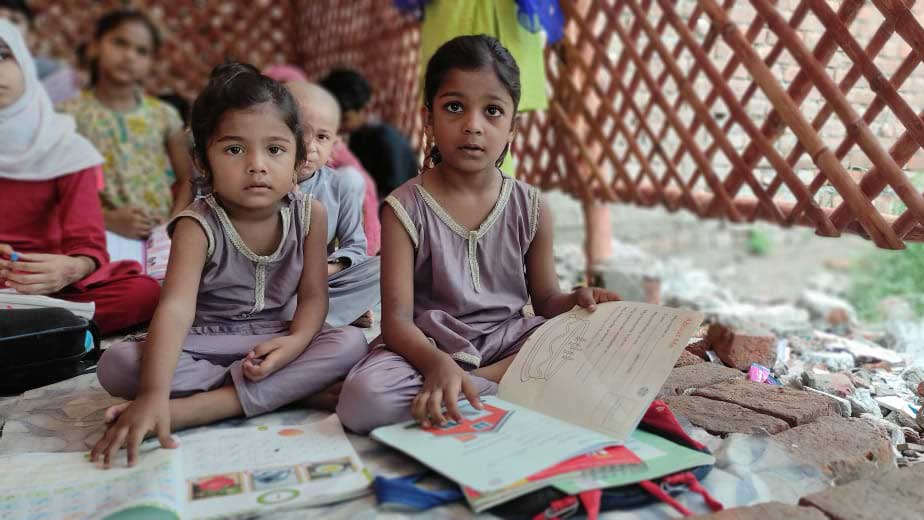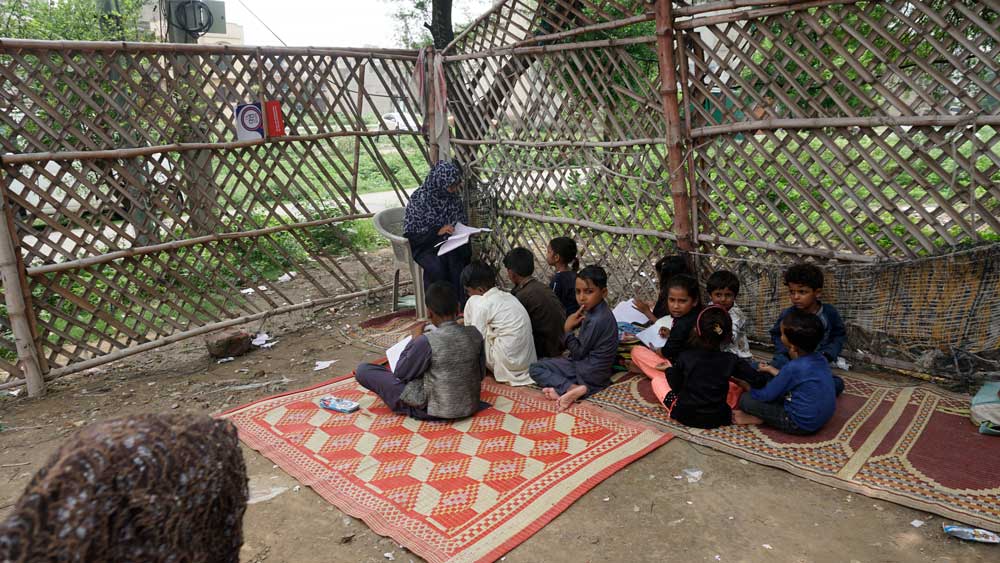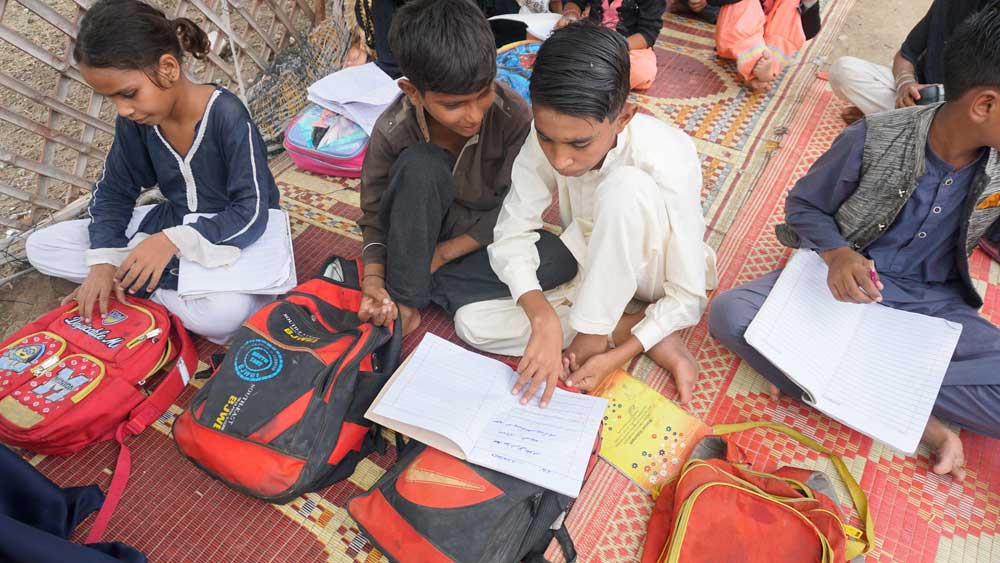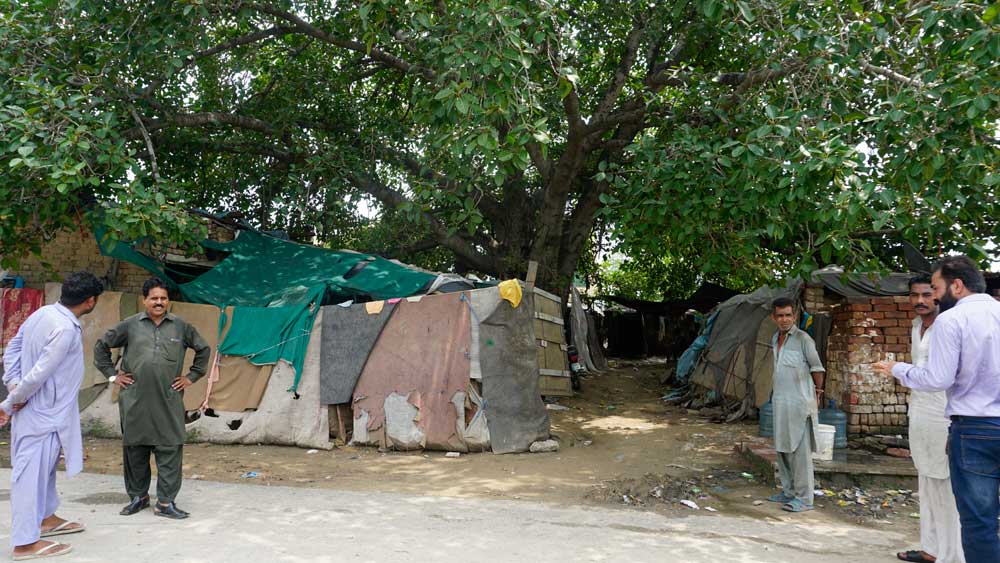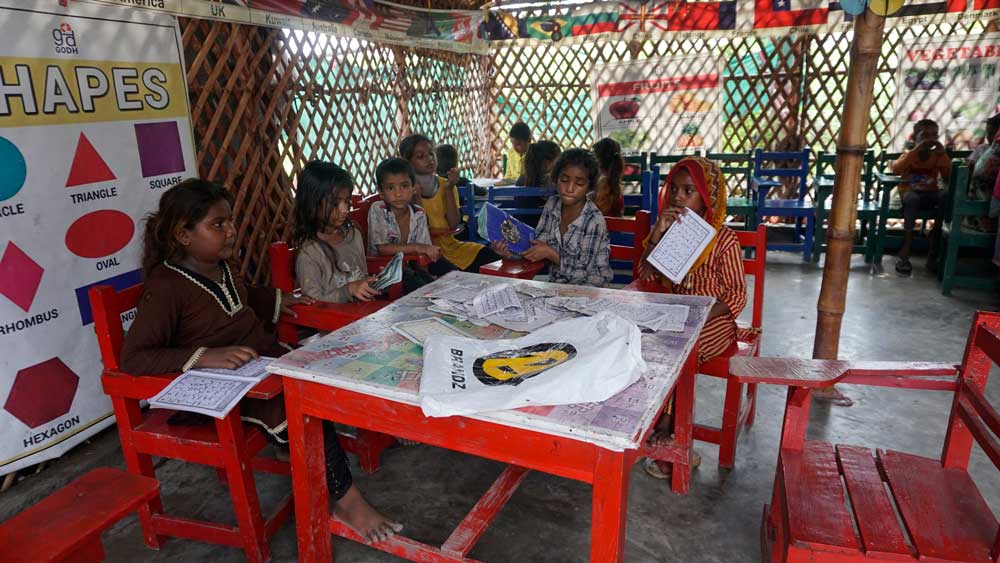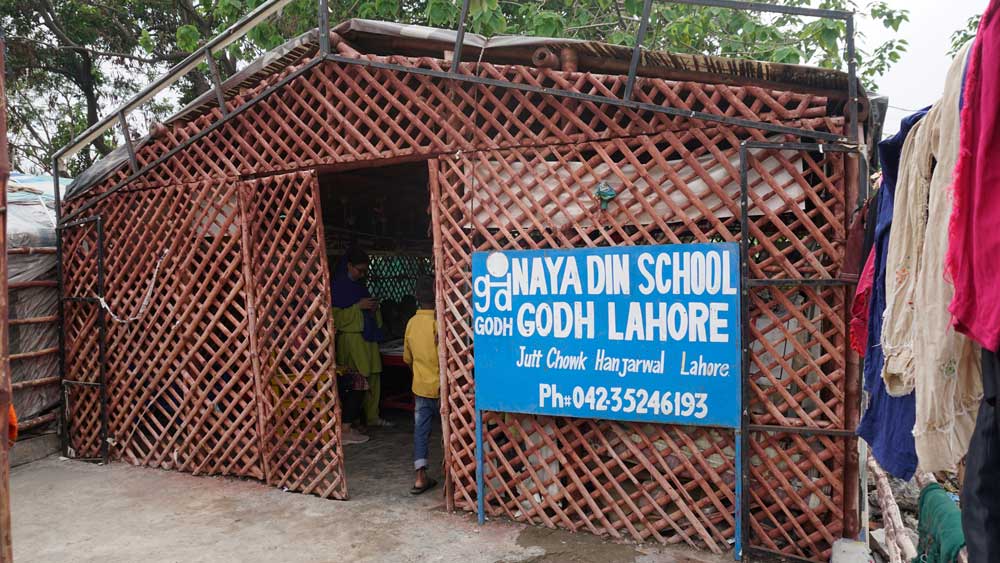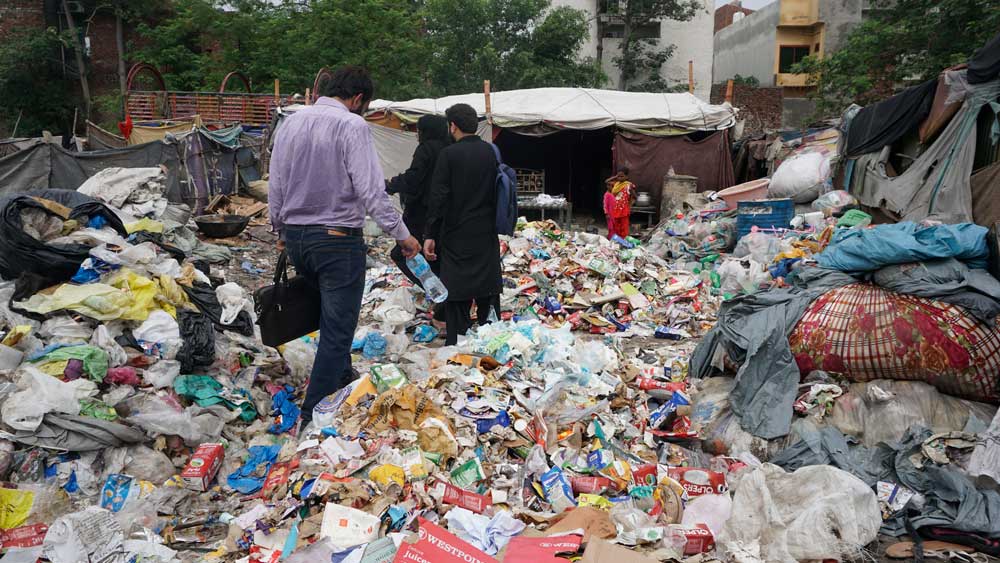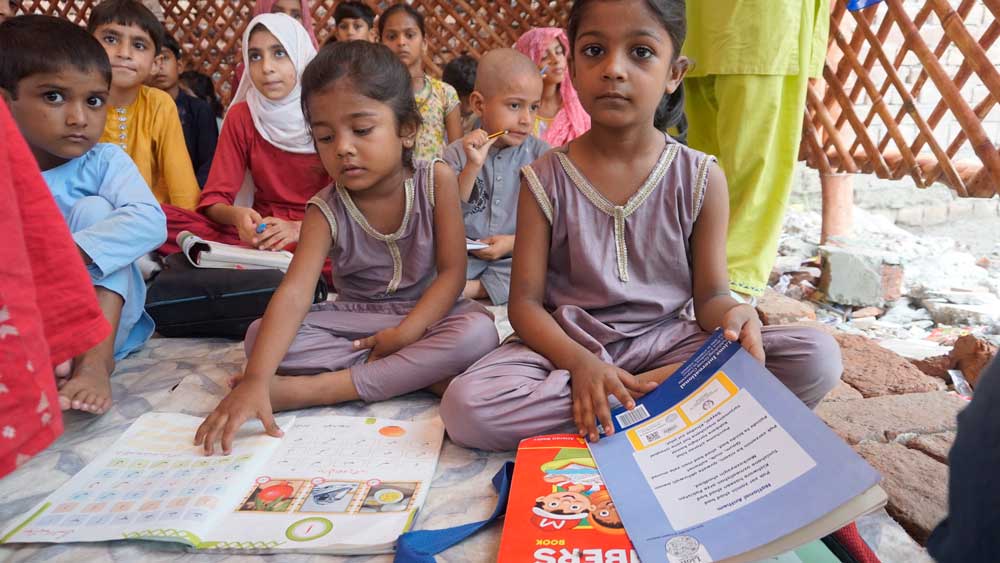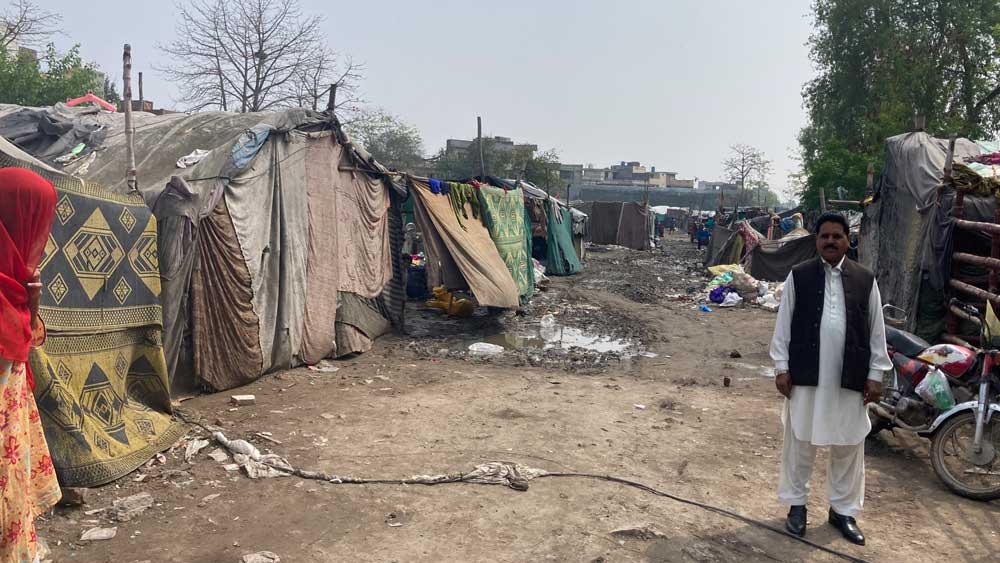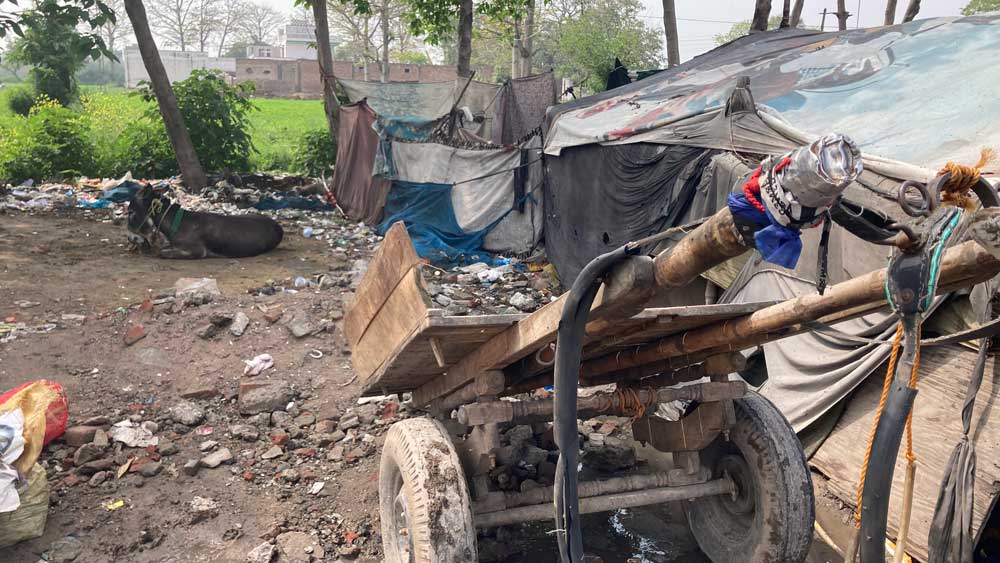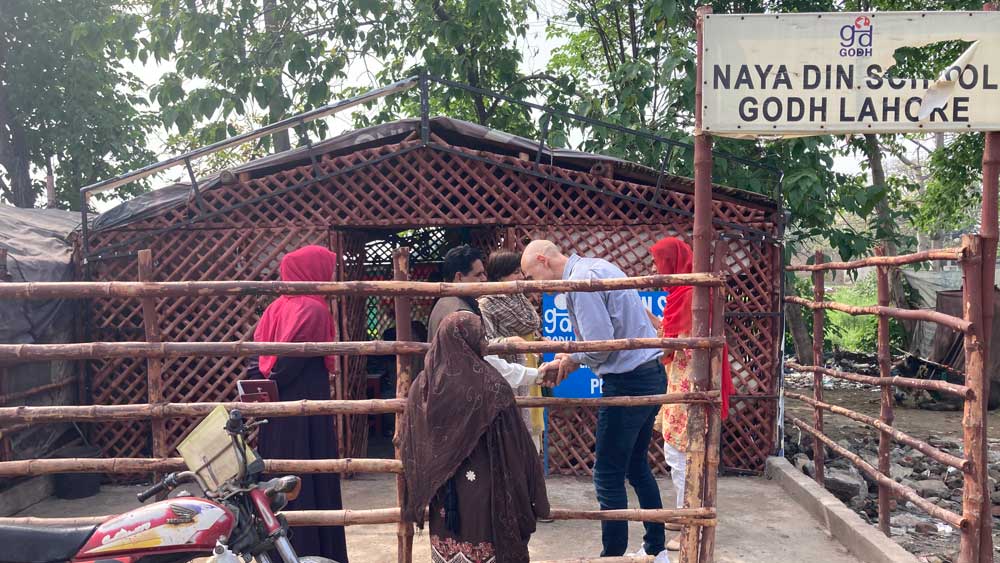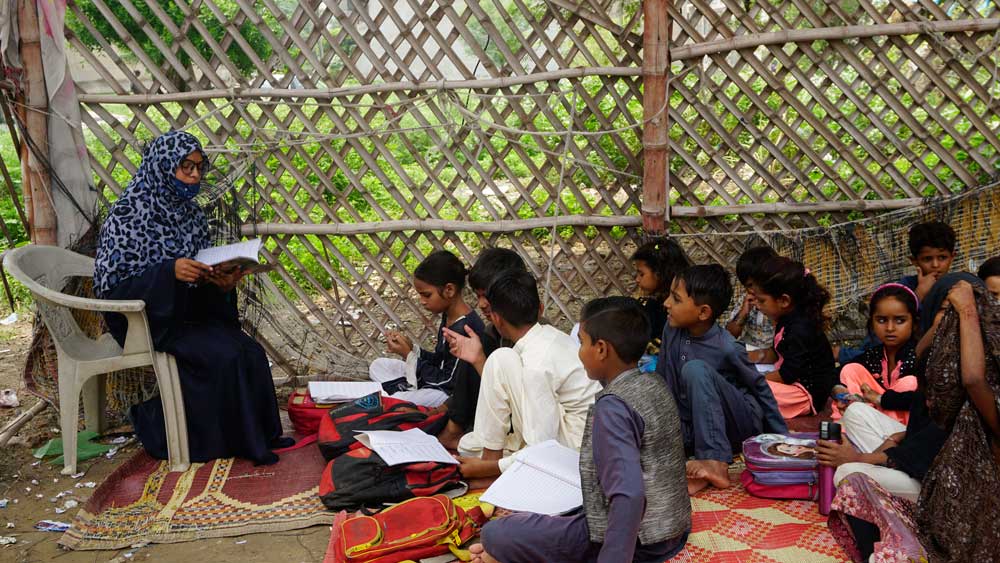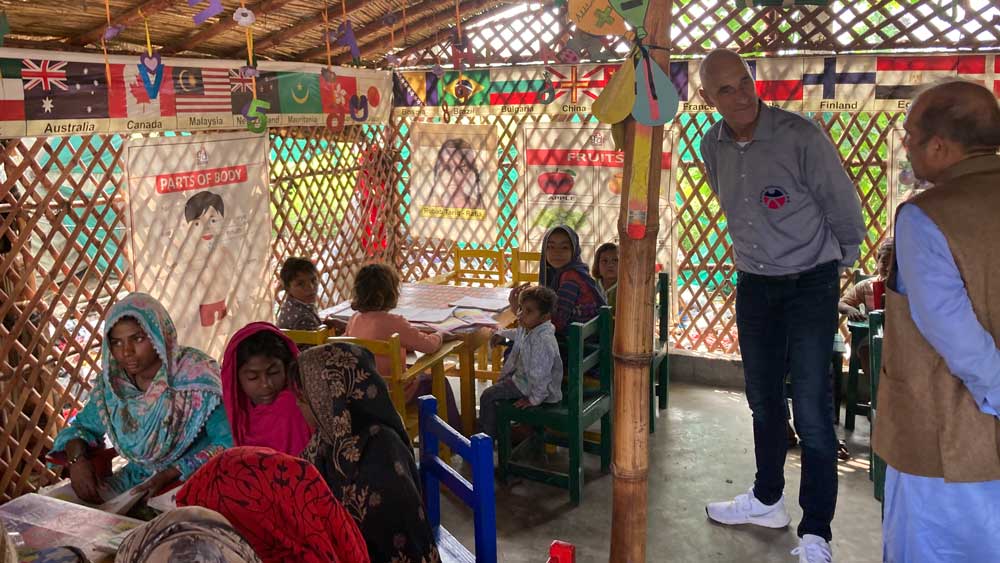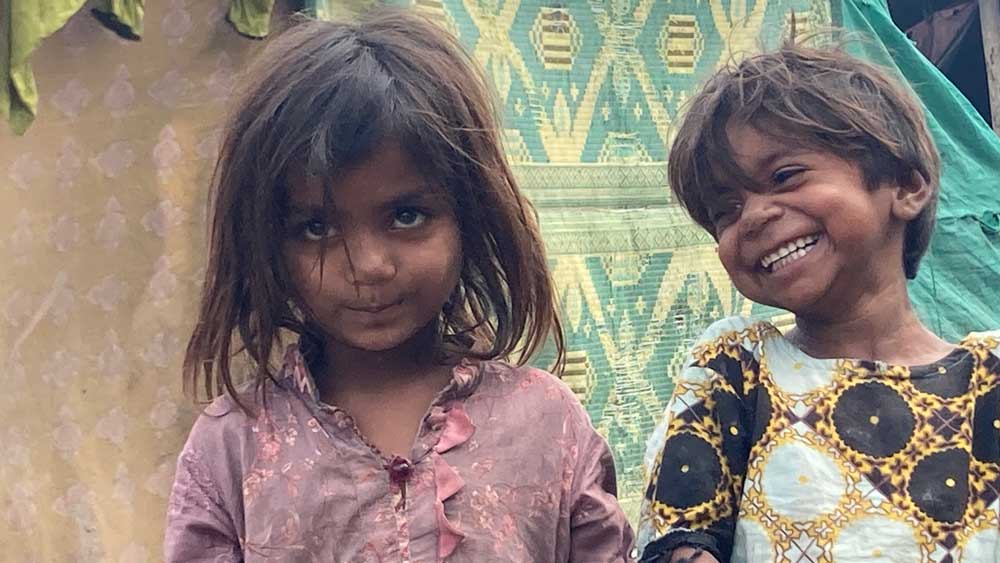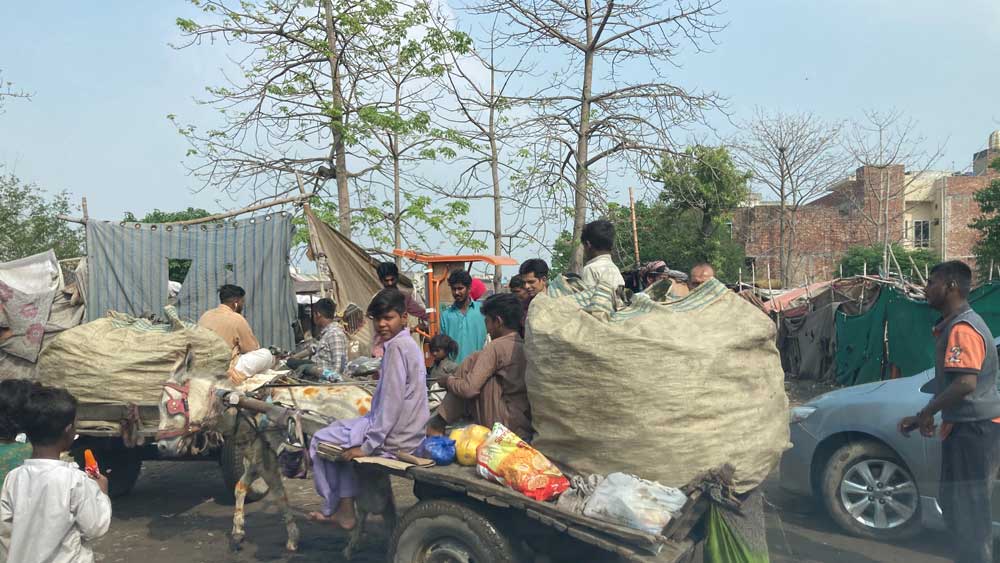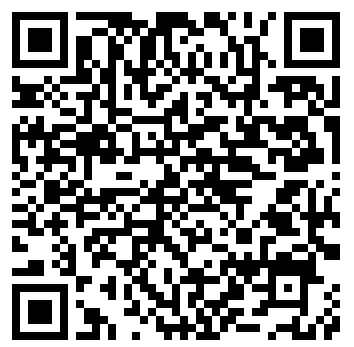Empowering Street Children in Lahore, Pakistan
Context of the project
According to a recent survey by the Pakistan Institute of Development Economics (PIDE), there are approximately 1.5 million street children in Pakistan, most of whom live in urban areas. In Lahore alone, the number of street children is estimated at around 100,000 (Punjab Commission for Protection of Child Rights, 2021). These children are exposed to many risks, such as injury and disease, child labor, child marriage, substance abuse, violence, human trafficking and exploitation.
To break this cycle of chronic risk exposure and poverty, a local NGO, Grass-Root Organization for Human Development (GODH), has been running 20 schools in 20 slums in Lahore for many years. The schools play an essential role in these communities as they serve as educational institutions and centers for community activities. During an orientation trip in March 2023, Kleine Hilfsaktion e.V. (KhA), was able to get an idea of the living conditions of the children in the slums and inspect one of the schools. While the poverty suffered by the children was sobering, it was evident that the schools were providing essential services to the communities but needed more assistance. United Vars CSR Project 2023 involves renovating one of the 20 schools and constructing three more schools in three other slums in the region.
The primary goal of the program is the education of street children. However, the program also assists families living in the slums in obtaining legal documents such as birth certificates and ID cards, which are essential to access various government services. Additionally, a health component of the program includes health camps and awareness sessions on hygiene and sanitation. Furthermore, the parents of the children are given the opportunity to learn new skills that allow them to better protect their children in a challenging social environment. All program initiatives aim to address problems of (educational) poverty, illiteracy and lack of access to essential services and to create opportunities for a better future for themselves and their children.
For those wishing to join this exciting work, the door will remain open to new partners who want to help fund the program. If United Vars’ appeal for additional donations is successful, KHA plans to have all 2,058 children in the four defined slums undergo an ophthalmological examination and correct any identified visual impairments with glasses, an operation or any other required treatment.
Target Group
Direct beneficiaries
- 160 to 180 children from the four communities will receive conventional and digital lessons for eight months.
- 4,605 community members, including 2,058 children, receive support in the form of health camps, workshops, activities and events.
Project Measures
- Improving access to education
- Provide teaching materials and hire new teachers.
- Children receive an elementary school-level education.
- Build three new schools, and expand and refurbish an existing school to accommodate more students.
- Digital literacy
Technology/digitization has become an integral part of our daily lives. Children lacking digital skills can suffer significant disadvantages in education, employment and social integration. In order to integrate children into mainstream society, it is essential to teach them basic digital skills. Likewise, the children are taught cyber security so they can use their smartphones safely in the future and avoid cyberbullying.
- Improvement of health and hygiene
The children and their families are informed about health and hygiene as part of the program. A monthly health camp with medical specialists and hygiene workshops are organized. These workshops will cover topics such as proper hand washing, sanitation practices and disease prevention. Educating parents about these issues can help improve their children’s health and well-being and the community at large.
- Improvement of livelihoods
The program provides children, and their parents, where appropriate, with some form of vocational training, with an emphasis on marketable skills designed to help them break the cycle of poverty.
- Parent and community training
The program hosts workshops on health, hygiene, effective money use, alternative income sources, the importance of official documents, early marriage, and family planning and parenting.
- Leisure and sports activities
Activities are organized for the children to help them be physically active, develop teamwork and social skills, and improve their mental health and well-being.
- Theatrical performances and storytelling
Theatrical performances are organized for children and parents in the community, where they can present their cultural and social problems through drama and storytelling.
- Increased community empowerment through various governmental and non-governmental organizations
The program works with local organizations to empower community members to stand up for their rights and improve access to legal documents.
Sustainability
The program is designed to be community-led and participatory. Community members are involved in a variety of ways. By involving community members in the program, they are more likely to sustain it over the long term as they take ownership and feel accountable for its success. This will include training and empowering local leaders to continue providing services and support to the community after the project is complete. In addition, the project will seek to enroll the children in public schools and provide assistance to adults to successfully complete their training.
